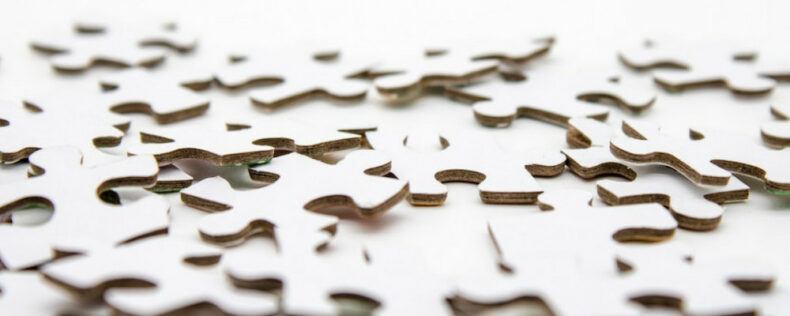If you’re new to working out and are looking to put on some significant muscle, you might not know what to expect on the journey ahead of you. You might not know if what you’re seeing, doing, or experiencing is normal and expected, or if you’ve gone off course and are doing something wrong. The truth is that the process of building muscle can be complicated and confusing, and unless you really know what you’re doing, it can be rather difficult.
To help guide you towards achieving that desired muscle growth, here are some lessons I’ve learned from my own training, as well as what I’ve observed from others.
Building Muscle Requires Patience
The first thing to keep in mind is that you won’t see change overnight. If you’re expecting to notice muscle growth immediately after you start going to the gym, you’re going to be disappointed.
Muscle growth takes time; even if you’re going to the gym routinely and doing everything correctly, it can take weeks or even months before you finally see improvement. This doesn’t mean that your body isn’t changing, but it’ll take some time before those changes become visible to the eye.
That’s why working out requires lots of commitment and patience. Many people don’t see much progress right away, so they give up thinking their effort is a waste of time, when in reality they would’ve begun to see improvement if they’d just kept it up for a bit longer. I can certainly relate to this, because after two weeks of consistently working out and not seeing any difference, I also contemplated giving up. Looking back now, it was naive of me to think I could totally transform my body in such a short span of time.
Being willing to embrace the long journey ahead and being able to have realistic expectations are crucial elements of having the right mindset for achieving muscle growth. After all, long-term success in the gym requires both the necessary physical and mental tools. If you want to know what else goes into having a good workout mentality, I’ve written another post titled The Right Workout Mindset for Building Muscle.
Muscle Growth Isn’t Linear
Something else you should know is that not only does muscle growth occur gradually, it also doesn’t happen in a linear fashion. The reality is that you won’t find yourself building muscle at a constant rate.
In the beginning, new lifters who work out consistently may experience relatively fast muscle growth. This is a common phenomenon known as newbie gains. As a beginner, when you start going to the gym frequently, your body isn’t used to the strain that’s now constantly being put on your muscles. Because of this, it works extra hard to rapidly adapt your body and build up your muscles to handle the activity.

However, as you become more experienced and your body is used to exercising all the time, any additional strain from lifting heavier weights and doing more reps won’t disrupt your body as much. It’ll still need to repair your muscles afterwards, but it won’t need to dedicate all of its resources to doing so. As a result, your body won’t transform as quickly after this initial period.
Furthermore, as you increase your muscle mass, it becomes more difficult to continue building muscle. Adding a pound of muscle takes exponentially more energy and effort when your body is already pushing its capabilities rather than when you don’t have much muscle and your body has a wide range of adaptability. For example, when I started bench pressing, there was a point early on when I was increasing the weight pretty frequently. It seemed like I was able to add more weight almost every other session. However, as I was nearing 225 pounds, it began taking weeks to go up by even another five pounds.
If this happens to you, it’s not that you’re necessarily doing anything wrong, it might just take a lot more persistence to continue seeing more gains. This is normal, so don’t panic if your rate of progression begins to slow down.
Exercise Is Essential, but not Everything
Strength training is a necessity for building muscle. It triggers the hypertrophy process by breaking down your muscle fibers, which then allows your muscles to repair and grow. However, there are several other factors that can impact your ability to develop more muscle, particularly with the repair process. Two of the most important are diet and sleep.
Diet can affect muscle growth based on your protein intake as well as your overall caloric intake. Muscles are fueled by protein, so if you don’t eat enough protein every day, your body won’t have the necessary means to properly repair and build muscle. If you don’t eat enough calories in general, your body won’t prioritize muscle growth; it’ll instead try to save as much energy as possible for more critical bodily functions. In addition, without enough food, you’ll feel more tired, which will reduce the effectiveness of your workouts.
Sleep is another factor you shouldn’t overlook. Your body does much of its physical and mental recovery while you sleep, including muscle repair. If you’re not getting adequate sleep at night, your muscles won’t recover as quickly and effectively. When it comes to muscle growth, the reality is that although exercise is important, there’s only so much it will do for you unless you also properly address the other elements involved.
Rest Is Crucial
You might be tempted to train as much as you can, especially if you want to quickly add muscle mass. However, before you get carried away doing so, you should be aware that overworking your muscles can be a detriment to your fitness goals. To prevent this, it’s encouraged that you incorporate rest days into your routine.
Overworking your muscles creates too much strain on them. Some amount of strain is necessary to build muscle, but too much can lead to severe injuries that may keep you out of the gym for a while. In addition, exercising a muscle too frequently can actually inhibit growth. Like I mentioned earlier, muscles grow during the repair phase after exercise. If you don’t have adequate rest between workouts, you’re essentially cutting your recovery short and limiting your potential gains.
Implementing 1-2 rest days a week will ensure that your muscles have sufficient time to recover, which will reduce injury risk and enhance muscle development.

Rest days are also surprisingly helpful for overcoming physical and mental burnout. It takes great motivation and discipline to maintain an exercise routine, but every now and then there’ll inevitably be days when the last place you want to be at is the gym. When this happens, instead of dragging yourself to the gym and having a lethargic, uninspired workout, it’s OK to just stay home. Let your body and mind rest up so that you can be energetic and excited to get back to your routine the next day. One day doesn’t sound like a lot of time to recharge, but from personal experience, it really does make a huge difference. For a more detailed guide on how often you should be exercising, check out my post Should You Exercise Every Day?.
A Little Wisdom Goes a Long Way
Being ambitious about building your physique is great, but wanting something isn’t the same thing as being able to do it successfully. The latter only comes when you know what to do and what you should expect. Hopefully, by taking what I and others have learned from our fitness endeavors, you have a better understanding of the intricacies of building muscle and will have a smoother time as you embark on your own.

